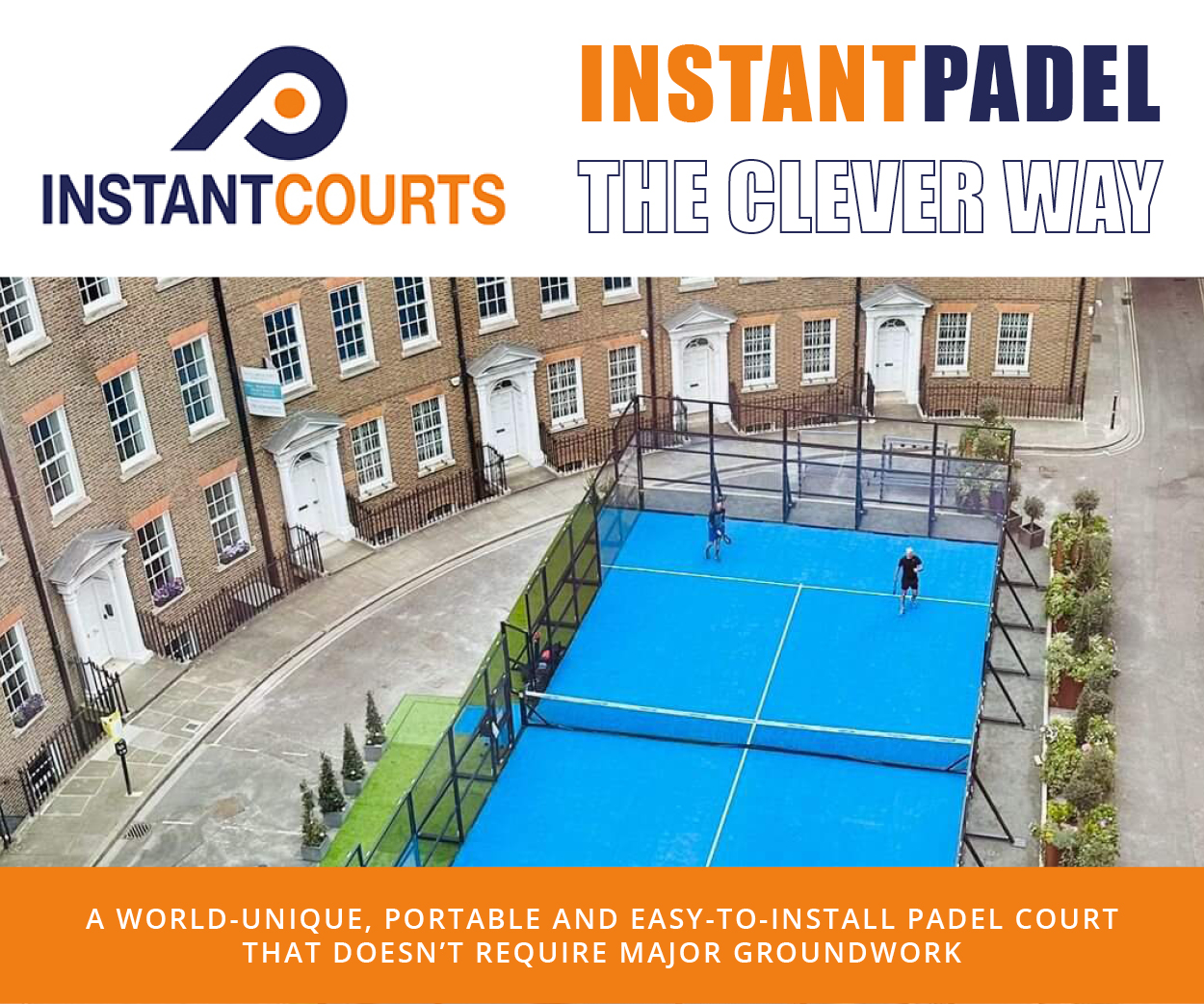Michael Gradon is the co-founder and CEO of Game4Padel – the UK’s largest padel operator with 21 clubs and many more in the pipeline for 2025. The Padel Paper sat down with the former director of the Wimbledon Championships to get his insights and revelations about life at the centre of the UK’s extraordinary padel boom.
Game4Padel’s global portfoilo is set to hit 100 courts in early 2025 as it expands its empire of clubs in the UK, Australia, New Zealand and Spain. The company was founded in 2019, when padel in the UK was barely an acorn, but it now has a hungry pack of wide-eyed entrepreneurs in pursuit of its market share, all keen to swing from the branches of a future mighty oak.
Michael Gradon, Game4Padel’s co-founder, is not the first to liken the UK padel industry to the Wild West. New operators with occasionally questionable pedigree and fanciful growth projections are joining the perceived gold rush on a weekly basis. Having taken five years to build 62 courts, Michael has to suppress a smile at the “staggering naivety” he’s heard from the hordes of industry arrivistes.
He tells us: “So many people play padel and fall in love with it. It quickly becomes their life’s dream to do a fun thing that combines business and their passion for padel. They may or may not have a rich uncle prepared to bankroll them, and off they go. I think there’s a staggering naivety about how easy it is. Our success, which only amounts to 50 courts in the UK so far, is down to five years of incredibly hard labour.”

Scarred by his many experiences at the hands of the UK’s capricious planning and building regulations, Michael is wary of publicly announcing new projects until every box has been ticked. So when he names a whole list of projects set for completion in early 2025, you know he’s not bluffing:
Two covered courts in Draycott, Staffordshire; three covered courts at the Withdean Sports centre in Brighton; three covered courts at Great Western Golf in Glasgow; a combined padel and tennis centre on Hove Beach Park in Sussex; three covered courts at an outer London university; four covered courts in central Birmingham; added canopies at its courts at the Berkeley Homes residential complex in Southall, London; two additional covered courts in Newquay, Cornwall; six courts at Tolworth and three in Chingford as part of its partnership with GOALS football centres; permanent courts at a London leisure centre as part of its GLL partnership; a forthcoming project at a Premier League football stadium and active negotiations on at least 10 other UK sites.
This huge list of confirmed (or all-but confirmed) additions to its existing empire will maintain Game4Padel‘s status as UK market leader. And for every one of these clubs there’s a list of sites that were considered, but either rejected on viability grounds or strangled by greedy landlords, rejection of planning or building applications or a myriad other roadblocks.

“It’s so hard to find sites that tick all the boxes and to negotiate economic terms that make sense,” says Michael. “There are people out there who have the dream of creating their own padel club or business, but they are making incredibly optimistic assumptions about utilisation and therefore income they are likely to get. That leads to them agreeing to what I think are crazy rents with commercial landlords.”
Michael says landlords have quickly cottoned on to the surge in demand and are orchestrating auctions for their commercial properties or land, playing padel operators (or wannabe operators) off against each other and renting to the highest bidder. He says: “Sometimes when I hear what the landlord is being offered by these companies, I think, ‘How can they conceivably justify that payment?’ It is sometimes two to three times what we think is a rational figure. Landlords are revelling in it.”
Like almost every other padel stakeholder in the UK, Michael is exasperated at repeatedly having planning and building applications delayed (sometimes by up to three years) or rejected outright, by local authorities. There is no national framework for such decisions; they ultimately come down to the whim or bias of individuals in decision-making positions within each respective local council.
It’s a major handbrake to growth – not to mention a block to the benefits that padel brings to local communities. Michael says he’d relish the chance to sit down with government ministers to stress the value that padel can offer to physical and mental health, social isolation, and NHS waiting lists. “It could be an absolute game-changer,” he states. “But short of the planning rules being changed, I don’t see anything we or the LTA can do about the situation. “It is what it is,” he laments.

“In a funny sort of way, whilst the planning and building regulations here drive me absolutely crazy, they do act as a very, very helpful barrier to entry and to excessive growth. We’ve all seen what’s happened in Sweden, and whilst we’re a long, long way off the sort of over-saturation they have experienced nationally, we’ve got to think quite carefully about local over-supply.”
Bristol – where three large indoor clubs opened almost simultaneously last year – is the most obvious example of this local over-saturation risk. Michael reveals that Game4Padel almost fell victim to the same bad luck, pulling out of a project in Durham at the last minute after finding out about True Padel’s nine-court project just a couple of miles away.
Whilst the Sweden situation is a useful cautionary tale, it’s also interesting to compare their numbers to the UK’s to indicate how far away we might be from a similar industry implosion. With roughly 4,500 courts for a population of 10.5 million, Sweden has 2333 people per court. The UK has a population of 68,350,000, so would need to reach over 29,500 courts before we hit Sweden’s level of per-person saturation. That’s a long way from our current court total of just over 500!
Game4Padel, which values itself at £27m, will naturally be part of this UK expansion over the next few years, but Michael urges the industry to proceed with realism and common sense. “We have shareholders who want us to make them a profit, but the moment we think we can no longer make money is when we put the brakes on,” he says. “To expand, it’s all about finding the right sites at the right price. That takes time, diligence and luck.”
We’ll have part two of our exclusive interview with Michael Gradon next week…










































